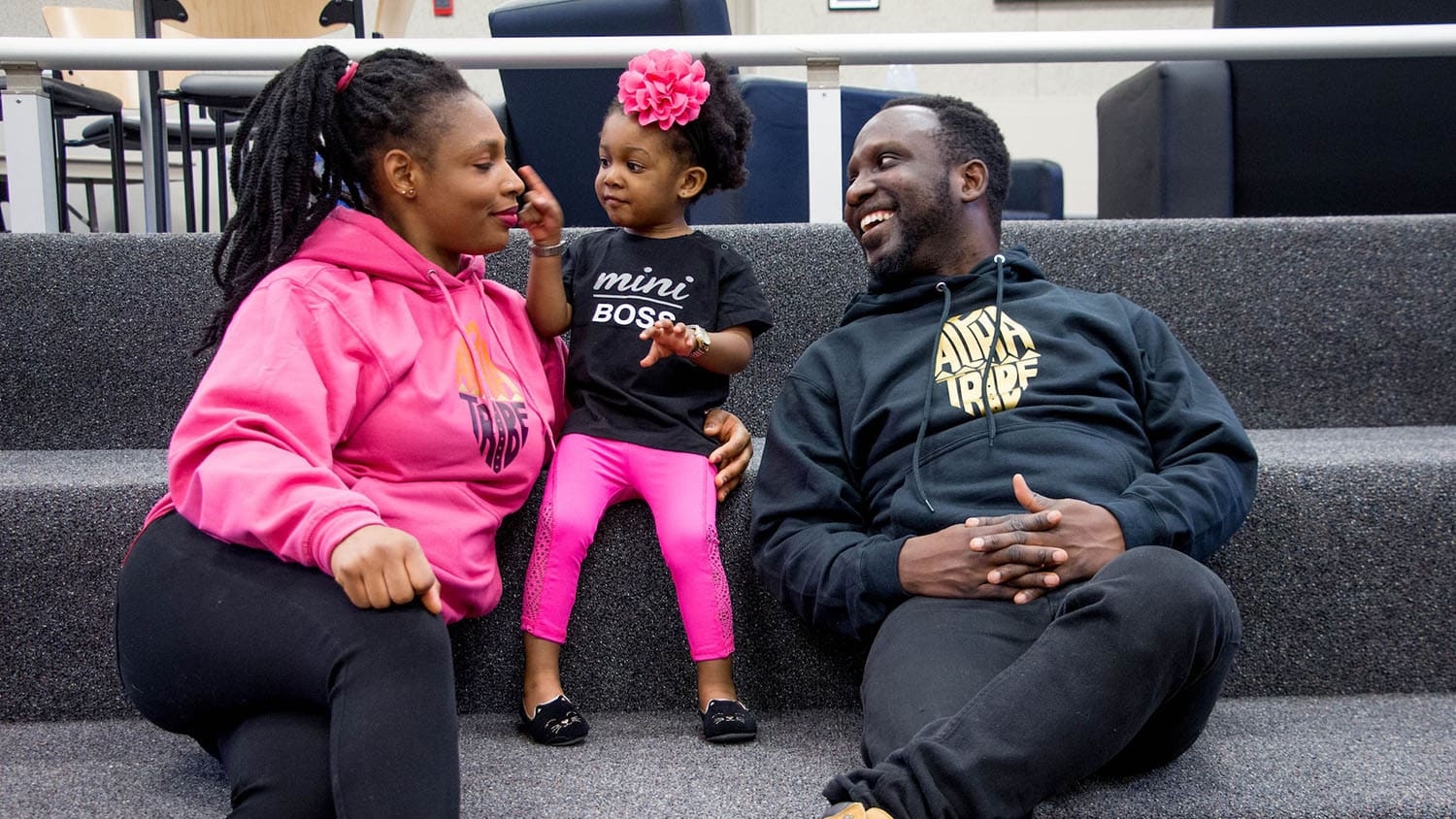Being a mom is hard. Being a Black mom is especially hard. A new study from North Carolina State University underscores the ways that being a Black mother in the United States involves navigating aspects of parenthood that are explicitly tied to dealing with anti-Black racism.
“All mothers experience stress; but Black mothers in the U.S. experience additional stresses specifically related to parenting and racism,” says Mia Brantley, author of the study and an assistant professor of sociology at NC State. “That has consequences for the health and well-being of Black mothers. If we want to develop ways to support Black moms and Black families, we need to have a deeper understanding of the challenges facing Black mothers – and how Black mothers respond to those challenges.”
For this qualitative study, Brantley conducted in-depth interviews with 35 Black mothers from across the U.S. All of the study participants had at least one child between the ages of 10 and 24. The interviews were designed to collect information about how Black women think about motherhood and mothering, as well as how Black mothers feel race and racism influences both their parenting and the lives of their children.
“There is a broad understanding that motherhood is, while rewarding, also a demanding responsibility,” Brantley says. “This study found that, while Black mothers share many of the same concerns as other mothers, Black motherhood is distinct. That’s because – in addition to wanting their children to succeed – Black mothers also take steps to both protect their children from racism and help their children learn to navigate a society where they will experience anti-Black racism.”
Brantley categorizes the ways racism affects Black motherhood into three areas: protective mothering, resistance mothering and encumbered mothering.
Protective mothering refers to practices designed to help Black children avoid racism. Specifically, Black mothers will often restrict children’s activities or behaviors in an attempt to reduce the likelihood that that their children – particularly sons – will face racist comments or actions. Black mothers also take steps to encourage agency – particularly for daughters – so that their children feel able to stand up for themselves.
Resistance mothering refers to efforts to promote positive self-image, with the goal of combatting racist stereotypes their children encounter outside of the home. These activities might include educating children about Black artists, leaders and accomplishments.
“Resistance mothering is really about empowering Black children and parents, so that they take pride in themselves and their culture,” Brantley says.
Encumbered mothering refers to the fact that Black mothers feel the need to be constantly hyperaware of the risks that racism poses to their children.
“Black mothers report that they are unable to fully enjoy and celebrate the accomplishments of their children, because they can’t ‘turn off’ their fears about how racist behavior may affect their kids,” Brantley says. “Black mothers feel that they always have to deal with preconceived notions about Black mothers and children, and that society essentially gives Black women no room for error.
“We talk about motherhood as universal, but all mothers do not experience motherhood in the same way,” Brantley says. “Black women face stresses that are unique to their experiences as mothers – stresses that continue into their children’s adulthood. While Black mothers are taking steps to protect their children, the stress of doing so may carry costs for the health and well-being of Black women.
“This study gives us a framework for understanding, studying and talking about Black motherhood. And, hopefully, that gives us a starting point for a more in-depth analysis of the toll that motherhood takes on Black women, and how we – as a society – can do more to support these women.”
The study, “Can’t Just Send Our Children Out: Intensive Motherwork and Experiences of Black Motherhood,” is published in the Journal of Social Problems. The work was done with support from the National Institute of Aging under grant number 5R01AG069251-02; the Ohio State University Institute for Population Research; and a University of South Carolina SPARC grant.
-shipman-
Note to Editors: The study abstract follows.
“Can’t Just Send Our Children Out: Intensive Motherwork and Experiences of Black Motherhood”
Authors: Mia Brantley, North Carolina State University
Published: Sept. 20, Journal of Social Problems
DOI: 10.1093/socpro/spad047
Abstract: Race and racism play an integral role in shaping mothering practices. Specifically, motherwork examines how Black mothers utilize strategies and practices to shield children from, as well as help them navigate through, experiences of racism. However, the necessity of these mothering practices may be fundamental in how motherhood is experienced for Black women. This study utilized qualitative in-depth semi-structured interviews with 35 (predominantly) middle-class Black mothers of children in adolescence and young/emerging adulthood. A grounded theoretical and Black feminist approach was taken to analyze data. Black mothers take on numerous laborious and exhaustive strategies to shield their children from racism through what I theorize as the concept of intensive motherwork. I define intensive motherwork as the exhaustive efforts and effects of Black mothers protecting and empowering their children and themselves in the face of anti-Black racism. Intensive motherwork can be seen in three broad themes: (1) protective mothering, (2) resistance mothering, and (3) encumbered mothering. This work expands current discourse on Black families by highlighting the overlap between the intensive nature of Black women’s mothering, the laborious practices that are deployed, and the role of race and racism on Black women’s mothering experience.
This post was originally published in NC State News.
- Categories:



